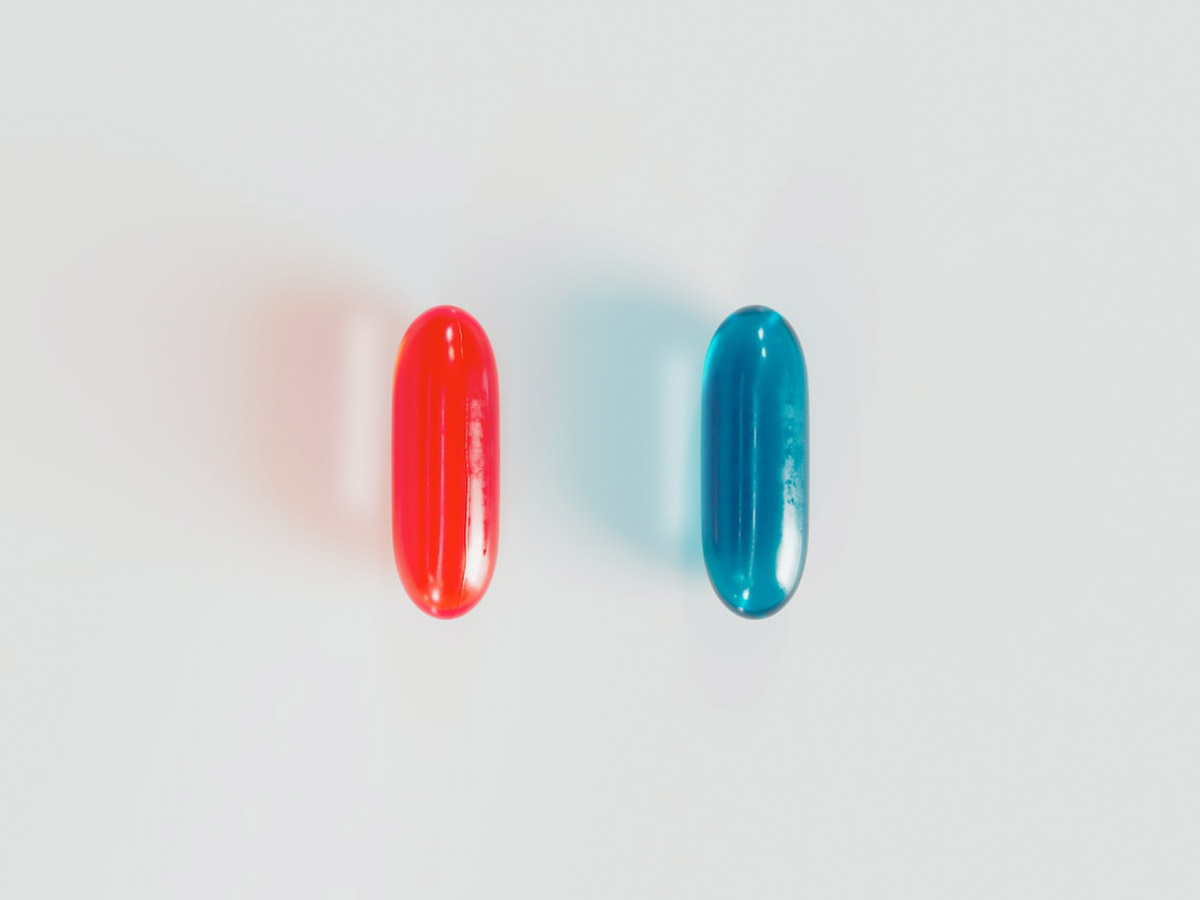Seizures can be a frightening and disabling experience for those who suffer from them. Many people search for ways to manage their seizures, and one popular option is to take nootropics. But can nootropics help with seizures? In this blog post, we will explore the answer to this question in detail. We will examine what nootropics are, how they help with seizures, and other alternatives that can help manage seizures. By the end of this post, you will have a better understanding of nootropics and their potential benefits of nootropics for general health.
What Are Nootropics?

If you’re like most people, you’ve probably heard of nootropics – substances that are often touted as being able to improve cognitive function and reduce stress. However, what are nootropics and what role do they play in the treatment of seizures?
Nootropics are classed as “smart drugs” because they have been shown to help improve cognitive function in a number of ways. For example, they can help to increase focus and concentration, reduce anxiety and stress, and boost your mood. They can also help to improve memory recall and processing speed.
How do nootropics help with seizures? In general, nootropics work by improving the brain’s ability to process information. This is why they have been shown to be helpful in the treatment of seizures – by helping to restore balance in the brain’s neurotransmitter systems, they can reduce the frequency and severity of seizures. Some types of nootropics have been specifically shown to be effective in treating seizure disorders, while others may offer some benefits indirectly.
What types of nootropic drugs have been proven safe and effective for treating seizures? Here are a few examples:
– Piracetam (Pirate Bay) is a popular Nootropic that has been proven safe and effective for treating various types of seizure disorders. It works by increasing brain cell activity and improving communication between different parts of the brain.
– Choline (Bought Smart) is another Nootropic that has been shown to be helpful in reducing seizure frequency by supporting nerve growth factor synthesis within the brain cells.
– Bacopa Monnieri (Bacopa) is often used as a natural supplement for cognitive enhancement purposes due to its ability to support cognitive performance during challenging tasks or stressful situations. It has also been shown to help reduce seizure frequency when taken together with other antiseizure medications.
– L-Theanine (Leafy Greens) is another Nootropic that has multiple benefits for those suffering from seizures including reducing anxiety levels, promoting relaxation, enhancing sleep quality, regulating blood pressure levels, mitigating oxidative stress damage caused by free radicals, and suppressing inflammation.
While there is still much research that needs to be done on the potential benefits of nootropics for treating seizure disorders overall, based on current evidence it appears that these substances may be worth considering as part of a comprehensive treatment plan. However, it’s important not to take any drug without first consulting with your doctor. In addition, it’s always important.
Health Benefits Of Nootropics For Seizures
Are you looking for ways to help manage your seizures? If so, you may want to consider using nootropics. Nootropics are supplements that have been shown to have a number of health benefits for people with epilepsy. They can help to reduce the frequency and severity of seizures, and they may also improve overall brain function. In this section, we’ll take a look at what nootropics are, how they help with seizures, and some of the potential benefits that they may have for people with epilepsy.
Simply put, nootropics are supplements that aim to improve brain function. They come in a variety of forms, including pills, powders, and even liquid supplements. Some of the most common nootropic ingredients include choline powder, caffeine, L-theanine (a type of amino acid), and phenylpiracetam (a type of cognitive enhancer).
How do nootropics help with seizures? Well, according to some research studies, certain nootropic ingredients can reduce the frequency and severity of seizures by improving blood flow to the brain. This increased blood flow can help to prevent seizure activity from happening in the first place. Additionally, many nootropic ingredients have been shown to increase levels of dopamine – a neurotransmitter associated with pleasure – in the brain. This increased dopamine activity has been linked with reductions in seizure activity.
What benefits may nootropics have for people with epilepsy? While there is still much research that needs to be done on this topic, there is evidence that suggests that certain nootropic ingredients may be helpful for managing symptoms associated with epilepsy such as mood swings and difficulty concentrating.
Additionally, some studies suggest that taking certain supplement formulations might improve cognitive function or memory recall in people who have epilepsy. However, it is important to note that not all studies support these claims. It is also important to keep in mind that not all people who take any form of seizure medication will see improvements in their symptoms as a result.
Potential risks associated with taking nootropic supplements for seizure control include possible side effects from any ingredient included in a particular formulation; interactions between different medications taken by someone who has epilepsy; and unknown long-term effects on brain function.
However, based on current scientific evidence, it seems likely that taking specific types of nootropics could be an effective way to manage seizure episodes. Long-term effects remain unknown, but if found safe and effective, supplementation could provide many benefits over traditional antiseizure medications.
How Do Nootropics Help With Seizures?
If you’re someone who suffers from seizures, you know that they can be a very frightening experience. Seizures are a result of over-activity in the brain, and they can range in severity from brief and mild seizures to more serious seizures that can cause injury or even death. Fortunately, there are many ways that you can help control your seizures and live a seizure-free life.
First, it’s important to know what are Nootropics & how they help with seizures. Nootropics are substances that have been shown to have anti-seizure effects in vitro or in animal studies. This means that nootropic substances have been shown to reduce the amount of seizure activity in the brain. In some cases, this has been demonstrated by reducing the duration of seizure episodes or reducing the number of seizures per day.
Next, how can nootropics help control seizures? In general, nootropics work by modulating various neurotransmitters in the brain. These neurotransmitters play an important role in controlling nerve cell activity and preventing seizure activity. Some well-known nootropics that have been shown to help with seizure control include caffeine, L-theanine, ginkgo Biloba extract (GBE), and omega-3 fatty acids.
Finally, what types of Nootropics are safe for seizure patients? As with any other medication or supplement, it’s important to speak with your doctor before starting any type of nootropic therapy for seizures. Generally speaking, however, most types of nootropics are considered safe for use by people with epilepsy as long as they’re taken appropriately under supervision from a healthcare professional.
Now let’s talk about the benefits & risks associated with using nootropics for seizure treatment: While there are many benefits associated with using nootropics for seizure treatment – such as reduced frequency & severity of seizures – there is still some unknown information about their long-term effects on the human brain.
Additionally, side effects may occur if an individual takes too much or uses an incorrect type of nootropic medication. So while nootropics may be a viable option for people who suffer from uncontrolled epilepsy, it’s still important to speak with your healthcare professional before starting any type of treatment.
In addition, while there are natural alternatives available to nootropics for seizure treatment – such as omega 3 supplements – these treatments should only be used.
Nootropic Alternatives To Help Manage Seizures
Do you know what nootropics are? These ingredients have been shown to have cognitive benefits, and in some cases, they can help to manage seizures. While there isn’t any definitive research on the effects of nootropics and seizures, it’s important to be aware of the potential risks before taking them. Additionally, it’s important to keep in mind that not all nootropics are created equal. Some may be riskier than others when it comes to seizure management.
One popular class of nootropic ingredients is called cholinergic agents. These ingredients work by helping the brain produce more acetylcholine, a neurotransmitter that is important for memory and learning processes. Cholinergic agents are often found in supplements designed to improve memory or concentration, such as Alpha Brain and Nootrobox.
However, not all cholinergic agents are safe for use during seizure management. For example, galantamine (Reminyl) can increase the risk of seizures in people with a history of seizures or those taking prescription medications for seizure control such as phenytoin (Dilantin). Therefore, it’s important to consult with your healthcare provider before starting any type of cholinergic agent for seizure management.
Another class of ingredients that have been shown to be helpful for managing seizures is the flavonoid family. These ingredients include flavonoids like quercetin and rutin which have anti-inflammatory properties and may help to prevent or reduce seizures caused by epilepsy or other neurologic conditions like stroke.
As mentioned above, not all flavonoids are safe for use during seizure management – speak with your healthcare provider about specific supplements that might be a good fit for you based on your unique circumstances and health history.
In addition, herbs have long been used as natural remedies for managing a wide range of health issues including epilepsy. One such herb is lamotrigine (Lamictal), which has been shown to be effective in reducing the number of convulsions experienced by people with epilepsy. However, as with any herbal remedy – always consult with your healthcare provider before starting any herb regimen if you are taking prescription medication or if you have other health concerns.
Finally – while not every person who takes a nootropic will experience side effects related to seizure management – it’s always wise to discuss potential risks associated with using these supplements with your healthcare provider before taking them. This way they can provide feedback on whether or not they think you could benefit from using this type of supplement.
Are Nootropics Effective for Stroke Recovery as Well?
Nootropics have gained attention for their potential in boosting recovery after stroke. Studies suggest that these cognitive-enhancing substances might help improve cognition, memory, and overall function in stroke survivors. However, it is essential to consult a healthcare professional before incorporating nootropics into a stroke recovery plan, as their effectiveness and safety may vary for each individual.
To Sum Things Up: Can nootropics help with seizures?
Nootropics are a powerful class of natural and synthetic substances that have been shown to help improve cognitive function, focus, and memory. They can also be beneficial in managing seizures, especially when combined with traditional medications. Nootropic alternatives, such as omega-3 fatty acids, magnesium, and choline, may also help reduce the frequency and severity of seizures when taken regularly.

